News archive
On this page you can search for older news. Choose a topic, type of news or enter your own keyword to filter out news.
View compact
Karolinska Institutet, in partnership with universities in Sub-Saharan Africa, has for the last three years implemented an impactful training programme on innovation for managers within the health sector. “We really need these kinds of efforts to achieve sustainable health. The programme empowers the participants to work together in addressing complex challenges,” says Dr. Rawlance Ndejjo, lead of one of programme's modules.
News

Bernard and Barbro Osher donate USD 2,100,000 (approx. SEK 23 million) to the Osher Center for Integrative Health at Karolinska Institutet. The donation follows an earlier donation in 2005 from the same donors.
News
As of January, next year, a new term of office for KI's Deans will begin. Deans have a line assignment and are appointed by the President. The role is undergoing change and development - an important task for the new Deans will be to participate in this process. As a Dean, you are part of the Faculty Board. It is the university management's intention to clarify the Dean's assignment in KI's line organization.
News
On September 19, Annika Bergquist was appointed Professor of Gastroenterology, focusing on hepatology, at the Department of Medicine, Huddinge (MedH). Annika is head of the Gastroenterology and Rheumatology Unit at MedH.
News
Medical student Julie Cheung from Karolinska Institutet (KI) recently won first prize at the prestigious Global Undergraduate Awards thesis competition in the category of Medical Sciences.
News
Mania is a possible but rare side effect of treatment with antidepressant medication in adults, but little has previously been known of this risk in depressed children and adolescents. A newly published paper in JAMA Psychiatry investigated this, finding no evidence of mania/hypomania induced by antidepressants by 12 weeks after treatment initiation. However, caution is necessary in treatment for children with more severe depression or where a parent has bipolar disorder.
News

The Swedish Society of Obstetrics and Gynecology annually awards the best doctoral thesis of the year. 2023 the award goes to Ritah Bakesiima, who completed her dissertation at the Department of Women's and Children's Health last year. Her research studies the barriers to contraception among adolescents, and enlightens the importance of peer counselling in increasing contraceptive uptake.
News

When the Times Higher Education (THE) in Great Britain publishes its annual university ranking, KI is ranked 50th among 1,904 institutions in the world and ranked 16th in Europe.
News
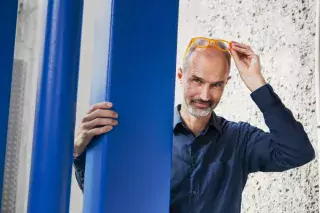
Thanks to the research conducted by Christian Rück and others there is currently research on all compulsive related disorders. He is now venturing into a perhaps even more difficult and important task: Suicide prevention.
News
A group of researchers at Karolinska Institutet, among other universities, are involved in a multinational project awarded 4 million US Dollars to investigate the link between neurodevelopmental conditions and neurodegenerative diseases. The award is funded by the National Institute on Aging (NIA) and the National Institute Of Neurological Disorders And Stroke (NINDS).
News

Anna Wedell, professor at Karolinska Institutet, has been awarded the Royal Swedish Academy of Engineering Sciences (IVA) Gold Medal 2023 for her efforts in precision medicine. This gold medal has been awarded since 1921 for outstanding achievements in technology, economics, business and society.
News
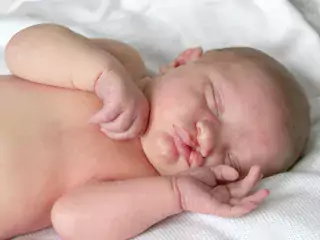
According to a new international study, cleft palate surgery at the age of six months provides better conditions for speech and language development compared to surgery at twelve months. The results were published in the New England Journal of Medicine by researchers from Karolinska Institutet and Karolinska University Hospital, among others.
News
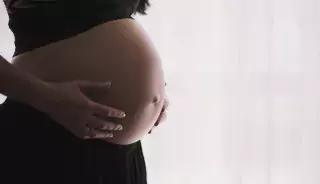
Olof Stephansson's research group receives Alvarenga's prize 2023 for the article: "Risk of postpartum hemorrhage with increasing first stage of labor duration" with the motto "How long it takes to give birth can affect the risk of bleeding". The prize is awarded by the Swedish Society of Medicine (Svenska Läkaresällskapet).
News

The Centre for Health Crises has received funding from the Swedish government to increase and support collaboration across the country’s universities on the topic of health crises. Initially, the Centre completed an online mapping of ongoing activities and existing health crises competences at a majority of the universities. We have also recruited Caroline de Groot, who is coordinating the work and is in the process of reaching out to key groups and individuals to learn more.
News
Childhood-onset type 1 diabetes (onset <age 18) and neurodevelopmental disorders, including attention-deficit/hyperactivity disorder (ADHD), autism spectrum disorder, and intellectual disability, globally represent substantial health challenges. The conditions also pose substantial challenges to the individuals, their families, and healthcare systems.
News
Professor Qiang Pan-Hammarström at Karolinska Institutet is one of six new members of the Royal Swedish Academy of Sciences. Among other things, she has researched immunodeficiency diseases and worked to find treatments for covid-19.
News

Family members and close friends of people with COVID-19 have elevated symptoms of depression and anxiety, a study from Karolinska Institutet published in The Lancet Regional Health – Europe reports. According to the researchers, the results of the study indicate a possible unmet public health need.
News
Type 1 diabetes is an autoimmune disease, often with onset during childhood, that requires lifelong insulin therapy due to the loss of pancreatic beta-cells.
News
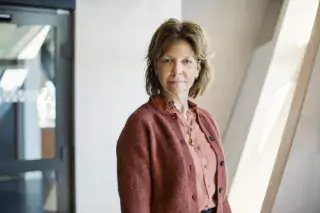
We’re now a few weeks into the term, and our students - both freshers and those who have returned after the summer break – have been welcomed to Karolinska Institutet. We were once all at the start of our student careers – we need to remember this, to inspire the coming generation and include them in an enjoyable student life.
News
Audience: Medarbetare
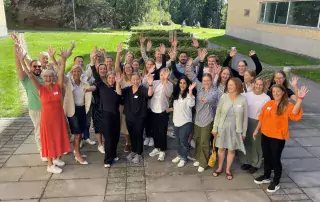
The Research School in Health Science 2023 kick-off event was a great success, bringing together supervisors, new doctoral students, and students from the 2021 cohort. Held on September 5th, this event marked a milestone for the research school.
News
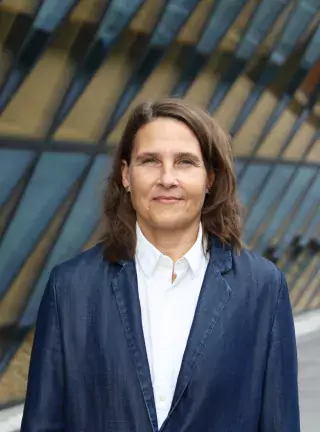
Lisa Strömmer is the new expert coordinator, in emergency surgery, at the Centre for Health Crises. She looks forward to, among other things, develop existing courses and work to make sure that emergency surgery as a competence is maintained in crisis preparedness, health crises and as a part of the total defense (Totalförsvaret).
News
The end of August and the beginning of September marks the start of the academic year and Karolinska Institute’s (KI) campuses are once again filled with students. KI welcomed more than 2,000 new students to the undergraduate and global master's programmes starting this autumn semester 2023. This year, the new students were not only welcomed during the welcome days in Aula Medica as the introduction programme for new students has been extend.
News

The air is buzzing with anticipation. Floral displays, long gowns and evening dress, and almost 900 chairs waiting for the graduands and their guests. It is the 15 September, and time to celebrate the graduation of 154 of KI’s new doctors in Stockholm City Hall.
News
Sten Lundin set his apartment on fire and was convicted of arson. It turned out that he had bipolar disorder and the care he got helped him on feet again. "Life can sometimes turn around. I want everyone to know that", says Sten Lundin.
News
She was deprived of liberty for over ten years. "I feel a great deal of sadness that it took so long before I received proper care", says Jenny.
News

The Nordic Congress of Gerontology (NKG) is arranged every second year in the Nordic countries and next year Sweden will be hosting the event. The 27th edition will be held at Karolinska Institutet on 12–14 June 2024. It is anticipated that 800 people and scholars from different parts of the world will take part, offering a diverse array of distinctive perspectives on the challenges and opportunities linked to population ageing. Registration will open on 2 October 2023.
News
Who is at the highest risk of committing violent acts - and who is not? Forensic psychiatrist Jonas Forsman's researches involves an instrument that can, in a best case scenario, simplify the assessment of most forensic psychiatric patients.
News
Anette Johansson conducts research on what separates psychotic people who commit crimes from psychotic people who do not.
News
7.5 years That is the average treatment time for a person who has been sentenced to forensic psychiatric care. This is 2.5 years longer than what previous figures has lead us to believe.
News
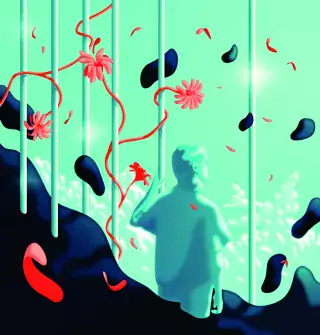
In 2022, roughly 350 people were sentenced to forensic psychiatric care. There is a unique borderland between the judicial system and healthcare, in which a person who has completed their medical treatment can be prevented from being discharged. At the same time, many patients are saying that they have benefited from the care. And fewer people relapse into crime after they have received forensic psychiatric care than they do after being imprisoned.
News

New technologies open new possibilities for groundbreaking research. StratNeuro aims to support the development and dissemination of new technologies and therefore announces a new funding call.
News
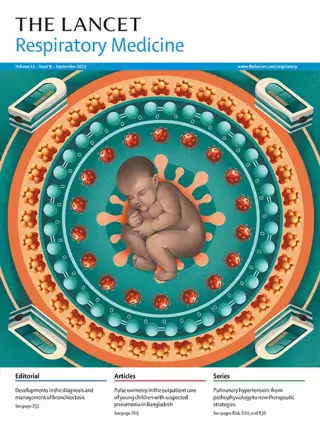
Team member Carina King with colleagues’ have an article published in this month’s issue of The Lancet Respiratory Medicine. The paper that is also featured on the cover, is about a multifacility, prospective, observational study conducted in rural Bangladesh to evaluate the potential effect of pulse oximetry implementation on the WHO IMCI-based outpatient care of 3848 young children with suspected pneumonia.
News
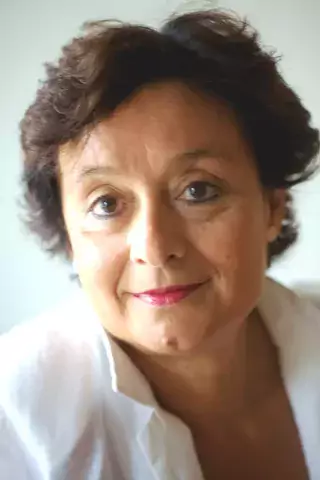
The prize is awarded annually by the Swedish Society of Medicine (SLS) to a person who has made outstanding contributions to Alzheimer's research. This year the Bengt Winblad Prize is awarded to Laura Fratiglioni, Professor of Medical Epidemiology with a focus on dementia diseases at the Department of Neurobiology, Care Sciences and Society, Karolinska Institutet.
News
The Swedish Society of Medicine (SLS) annually awards SEK 100,000 as a prize to a particularly deserving younger researcher who has applied for and been awarded SLS project grants. This year, the prize goes to Bahira Shahim, resident physician in cardiology and researcher at the Department of Medicine Solna.
News
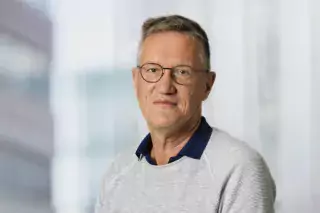
Former state epidemiologist Anders Tegnell has been awarded the BiotechBuilders Award 2023 for his efforts during the pandemic 2020-2023. The prize is awarded by the non-profit association Stockholm BiotechBuilders, to which KI is a partner and which works to strengthen the Swedish life science sector.
News

The early treatment of obesity in children is effective in both the short and long term, researchers from Karolinska Institutet report in a study published in International Journal of Obesity.
News
World Health Organization (WHO) has launched two new publications focusing on responsible media reporting about suicide and decriminalization of suicide and suicide attempt.
News
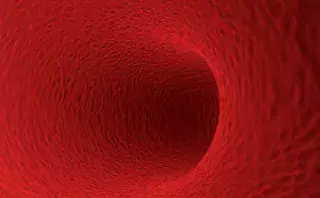
Although a simple molecule, nitric oxide is an important signal substance that helps to reduce blood pressure by relaxing the blood vessels. But how it goes about doing this has long been unclear. Researchers at Karolinska Institutet in Sweden now present an entirely novel principle that challenges the Nobel Prize-winning hypothesis that the substance signals in its gaseous form. Their findings are presented in the journal Nature Chemical Biology.
News
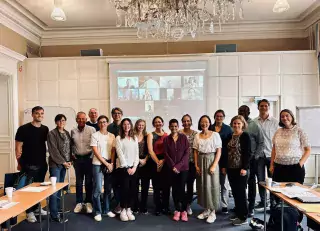
Every year our team meets outside of the KI campus for a team day. It is a chance to kick off the academic year together, getting to know each other and increase the chances of research synergies and collaborations. This year we spent the day at beautiful Ersta Diakoni on Södermalm in Stockholm. One of the highlights was the session with invited speaker Anders Nordström, Ambassador for global health.
News
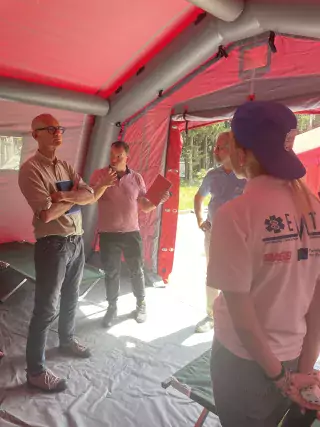
The Centre for Health Crises is currently supporting the WHO’s EMT (Emergency Medical Teams) initiative, through mentorship to the Ministries of Health in Georgia and Armenia in their development of EMTs. The director of the Centre, Professor Johan von Schreeb, has just returned from spending ten days in the two countries, working with the Ministries and other partners.
News
Susanne Andermo, Assistant Professor at the Division of Nursing, will receive part of the Swedish School of Sport and Health Sciences' more than SEK 5 million, received from the Council of the European Social Fund in Sweden.
News

Results from a large population-based cohort study, including 60 000 men and women in central Sweden, suggest that exposure to higher concentrations of disinfection by-products in drinking water is associated with elevated risk of colorectal cancer in men.
News
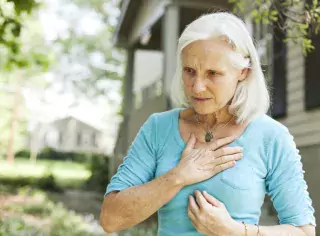
Reflux disease manifests as acid regurgitation and heartburn and is a known risk factor for oesophageal cancer. However, a new study published in The BMJ by researchers at Karolinska Institutet now reports that the majority of patients do not have a higher risk of cancer. A large-scale study from three Nordic countries shows that the cancer risk is only elevated in patients whom gastroscopy reveals to have changes in the oesophageal mucosa.
News

The Swedish Society of Medicine awards Professor Jesper Lagergren at Karolinska Institutet with the Reuterskiöld Prize, for world-leading research focusing on the causes, prevention and treatment of esophageal and gastric cancer.
News
Professor Miia Kivipelto, Division of Clinical Geriatrics at NVS, receives almost SEK 24 million from Forte for the project "FINGER-Pro: Evidence-based health promotion interventions for healthy ageing: Adaptation and implementation of the FINGER-multidomain model in diverse environments and sociocultural contexts".
News
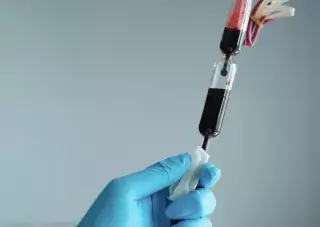
A major study published in JAMA led by researchers at Karolinska Institutet suggests that a possible cause of spontaneous brain haemorrhage could be transmitted via blood transfusion. At the same time, it is very unlikely that anyone should suffer a brain haemorrhage after receiving donated blood.
News
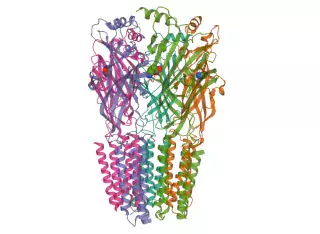
The Ulf von Euler Lecture is an official annual named lecture of Karolinska Institutet. It was instituted by decision of the faculty at KI upon an initiative taken by Ulf von Euler's former students at the time of his passing away in 1983.
News

KI has climbed the furthest of all universities in this year’s Kantar Public Reputation Index, notching up a eight-point recovery from 58 to 66.
News

A new study shows that the activation of the brain's immune defense cells, astrocytes, in the early stages of Alzheimer's disease, could be tracked early with a brain PET scanner, and is linked to changes that can be detected in the blood later in the course of the disease. The study has now been published in Molecular Neurodegeneration.
News
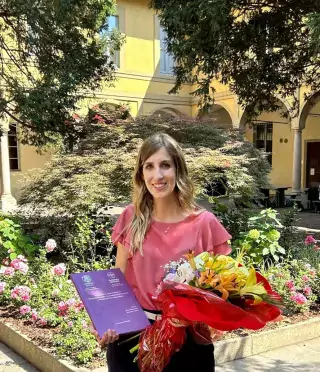
Dr Giulia Dallagiacoma graduated from medical school at the University of Pavia, Italy, where she also recently completed her specialty in Public Health and Preventive Medicine. As part of her specialty training, she had the opportunity to visit another university and therefore joined Karolinska Institutet as a guest researcher to write her thesis project on RSV prevention among children.
News
